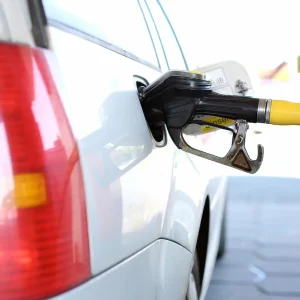The BVRLA says company car tax clarity and more support for electric fleet infrastructure should be among the measures announced in the Chancellor of the Exchequer’s next Budget.
The rental and leasing industry body has made a pre-Budget submission ahead of the fiscal announcement, scheduled for 3 March, outlining the measures it says are needed to support businesses’ recovery from the effects of the Covid-19 pandemic.
One of the three clear measures the BVRLA says should be taken is the clarification of company car tax rates up to 2025-26. The BVRLA argues that both leasing firms and customers require long-term clarity on this, in order to calculate the affordability of lease contracts that could be four years in length. In addition to announcing rates for the year 2025-26, the BVRLA says the previously announced 2023-24 and 2024-25 rates should be written into law.
It also says that clarity about the future BIK company car tax rates applied to EVs will also be crucial if the government wants to keep successfully driving the uptake of these vehicles, arguing that the success seen so far in this area is impressive, but fragile, with the higher values of EVs making them more sensitive to rate changes than petrol or diesel cars. Although the BVRLA acknowledges that extremely low rates for EVs are not sustainable indefinitely, it argues that 2025-26 would not be the time for significant increases.
Electrification is also the subject of the second measure the BVRLA wants from the chancellor – an expansion in green investment tax allowance. It says that the full cost of investing in workplace charging infrastructure is a barrier for many fleets, as although businesses can offset the cost of charging points to reduce their tax liability, they cannot offset the full costs involved, including those associated with ground works, installation, and grid upgrades. The BVRLA says this situation needs to change in order to incentivise private investment in expanding the UK’s charging infrastructure.
The BVRLA’s other request is a freeze in VED until April 2022, arguing this is needed to support vehicle rental companies after they lost revenue from the tourism and leisure market due to Covid-19. It points out that a strong rental sector is also beneficial to business customers, allowing them to benefit from improved vehicle choice, competition, and lower prices.
BVRLA chief executive Gerry Keaney said: “This Budget is an opportunity for the chancellor to introduce measures that will give the fleet industry the confidence to invest, create jobs, and support economic recovery.
“We need a long-term perspective on tax to combat uncertainty, support for the hard-hit rental sector, and some creative thinking on tax allowances that can unlock investment in green technology.
“2021 will continue to be tough and the government will need to extend further support to businesses.
“Fiscal support is crucial and providing clarity, certainty, and creative incentives are vital to that mix. This will enable fleets to take important decisions that will help to make 2021 a year of recovery.”





